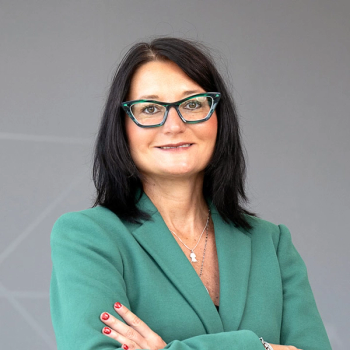
Mutation Detection Using Spinal Tap May Help Monitor CNS Lymphoma
The MYD88 driver mutation was detected in the cerebrospinal fluid of a majority of patients with CNS lymphoma, indicating its potential utility as a diagnostic and monitoring tool.
The MYD88 driver mutation was detected in the cerebrospinal fluid (CSF) of a majority of patients with central nervous system (CNS) lymphoma, indicating the potential utility of the testing method as a less-invasive diagnostic and monitoring tool, according to the results of a pilot study.
“Our analysis suggests that tumor cell-free DNA (cfDNA) is abundant in the CSF of these patients and can be detected with proper CSF handling and extraction,” wrote Jun Watanabe, MD, of Niigata University in Japan, and colleagues, in
According to the study, stereotactic or open biopsies are considered the gold standard for diagnosis of primary CNS lymphoma; however, these procedures are associated with serious morbidity and, sometimes, mortality.
MYD88 has been shown to be a driver mutation for diffuse large B-cell lymphoma (DLBCL), and may occur more commonly in primary CNS lymphoma than in DLBCL. Therefore, MYD88 may be an important genetic marker for the diagnosis of primary CNS lymphoma.
In this study, Watanabe and colleagues extracted cfDNA from CSF in 26 patients with CNS lymphoma: 20 with primary CNS lymphoma and 6 with CNS relapse of systemic lymphoma. They used Sanger sequencing and droplet digital polymerase chain reaction on the samples, and compared them with formalin-fixed paraffin-embedded (FFPE) tissue taken from 21 patients with available surgical samples.
MYD88 mutations were detected in 76.9% of the samples taken from CSF, including 80.9% of cases with primary CNS lymphoma and 60.0% of cases with systemic lymphoma. The most frequent mutation was L265P in exon 5 (95%). One sample had a mutation in S219C in exon 3.
There was a 100% match of MYD88 mutation detection between samples from CSF and tumor-deriver FFPE samples.
According to the researchers, it is anticipated that MYD88 mutations will be a positive predictive factor in the future, as targeted therapies are introduced. If that occurs, “detection of MYD88 mutations will enable the timely commencement of treatment in mutation-positive cases and might be used for monitoring treatment response and detecting early relapse, thus potentially contributing to an improved outcome in patients with primary CNS lymphoma.”
Newsletter
Stay up to date on recent advances in the multidisciplinary approach to cancer.











































